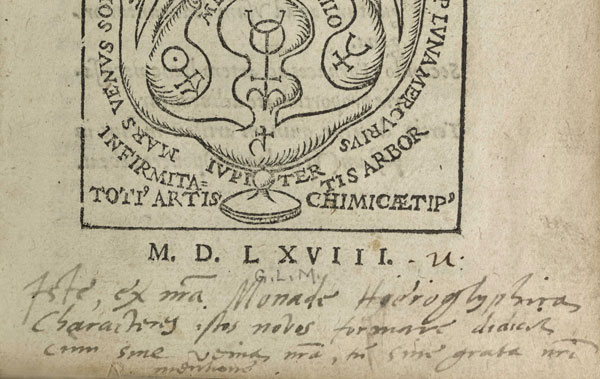
1. Who Was Gerhard Dorn?
1.1. The Life and Times of Gerhard Dorn
Gerhard Dorn (c. 1530-1584) was a prominent figure in the 16th century world of alchemy, philosophy, and medicine. Living during the height of the Renaissance and the dawn of the Scientific Revolution, Dorn made significant contributions to the development of alchemical thought and practice. His ideas influenced many later alchemists and had a lasting impact on Western esoteric traditions.
Little is known about Dorn’s early life and education. He was born in Mechelen, Belgium around 1530 and likely received a classical education typical of the time. At some point he developed a deep fascination with alchemy and immersed himself in studying the works of earlier alchemical masters.
Dorn spent much of his career in Basel, Switzerland, a center of learning and printing in the 16th century. There he served as a physician and alchemist, though details of his professional life are scarce. His most productive period was in the 1570s and early 1580s. In addition to his own experimental work, Dorn edited, translated and published the writings of Paracelsus and other important alchemical thinkers of the time. He is best remembered today for his innovative alchemical theories and the profound spiritual and psychological dimensions he brought to the art.
1.2. Historical and Intellectual Context
Dorn lived and worked during a time of great intellectual ferment and transformation in Europe. The Renaissance, with its revival of classical learning and embrace of humanism, was in full swing. At the same time, traditional authorities and worldviews were beginning to be challenged by the emerging natural sciences.
In the realm of alchemy, the 16th century saw a shift away from the medieval focus on chrysopoeia, or the transmutation of base metals into gold, and towards a more spiritual and philosophical understanding of the alchemical process. Paracelsus (1493-1541) pioneered a new alchemical medicine based on the idea of the “inner cosmos” of man mirroring the greater cosmos. He emphasized the use of chemically prepared medicines and a spiritual approach to healing.
Dorn was greatly influenced by Paracelsus, but also drew on a wide range of other sources, including ancient Greek philosophy, Gnosticism, Kabbalah, and mystical Christianity. He synthesized these diverse currents of thought into his own unique alchemical vision, which held that the true goal of alchemy was the transformation and perfection of the human soul.
1.3. Dorn’s Key Ideas and Contributions
Dorn is best known for his theory of the alchemical process as a journey of spiritual transformation and self-realization. In his view, the transmutation of metals was merely the outward sign of a profound inner transformation taking place within the alchemist himself.
Central to Dorn’s thought is the concept of the unus mundus, the “one world” that underlies the apparent duality of spirit and matter, inner and outer. He held that the alchemical work was a means of unifying these opposites and achieving a state of wholeness and perfection.
Dorn also placed great emphasis on the role of imagination and meditation in the alchemical process. He believed that by focusing the mind and will, the alchemist could achieve a state of gnosis, or direct spiritual insight, which would guide and empower the work.
In addition to his theoretical contributions, Dorn was a skilled practitioner of alchemy and medicine. He developed many innovative techniques and recipes, and his practical works were widely influential.
Perhaps most importantly, Dorn’s ideas foreshadowed the depth psychology of the 20th century, particularly the theories of Carl Jung. Jung drew heavily on alchemical symbolism in his exploration of the human psyche, and saw in figures like Dorn kindred spirits who understood the transformative power of the inner world.
-
Dorn’s Alchemical Philosophy
2.1 The Concept of the Unus Mundus
The central pillar of Dorn’s thought is the idea of the unus mundus, the “one world” or “one matter” that underlies all of reality. In Dorn’s time, the prevailing worldview was one of stark dualism – spirit and matter, God and nature, mind and body were seen as fundamentally separate and even opposed.
Dorn rejected this dualism in favor of a monistic vision rooted in the alchemical principle of the unity of all things. For Dorn, the prima materia, or first matter, was the common source of all substances, both material and spiritual. Matter and spirit, then, are not separate realms but rather two sides of the same reality.
The unus mundus is not merely a philosophical abstraction for Dorn, but a living reality that can be directly experienced through the alchemical work. By engaging in the processes of dissolution and coagulation, separation and reunion, the alchemist seeks to strip away the veils of multiplicity and achieve a unitive vision of the One.
This idea of the unity of all things had important implications for Dorn’s views on medicine, psychology, and spirituality. He saw the human being as a microcosm mirroring the macrocosm of the universe, and held that true healing and wholeness could only be achieved by bringing these inner and outer worlds into harmony.
2.2 The Alchemical Process as Spiritual Transformation
For Dorn, the ultimate goal of alchemy was not merely the transmutation of base metals into gold, but the transformation and perfection of the human soul. He saw the alchemical process as a powerful metaphor for the journey of spiritual realization.
In Dorn’s alchemical philosophy, the prima materia or first matter corresponds to the unrealized potential of the human psyche. Just as the prima materia contains within itself the seeds of all substances, so too does the human soul contain the potential for divine realization.
The alchemical process, then, is a means of actualizing this potential. Through a series of carefully controlled operations – dissolving, purifying, separating, recombining – the alchemist refines and perfects the psyche, burning away impurities and revealing the pure gold of the spirit.
Central to this process is the idea of solve et coagula, “dissolve and coagulate.” On the psychological level, this corresponds to the need to break down rigid thought patterns and limiting beliefs in order to reshape them into a more integrated and enlightened state of being. It is a process of death and rebirth, in which the old self “dies” in order to give birth to a new, transformed identity.
Dorn emphasizes that this process is not a linear one, but rather a cyclical journey that must be repeated many times. Just as the alchemist must patiently tend the fire, constantly adjusting and refining, so too must the spiritual seeker return again and again to the inner work.
2.3 Imagination, Meditation, and Gnosis
Another key aspect of Dorn’s alchemical philosophy is the emphasis on imagination and meditation as tools for achieving spiritual insight and transformation. For Dorn, the work of alchemy is not merely an outer, material process, but an inner, contemplative practice.
Dorn believed that the imagination was a powerful faculty that could bridge the gap between the material and spiritual worlds. Through focused visualization and active imagination, the alchemist could make contact with archetypal forces and gain insight into the hidden workings of nature and psyche.
Closely related to this is the practice of meditation. Dorn saw meditation as a means of stilling the mind and opening the inner eye of contemplation. By quieting the clamor of discursive thought and directing the will towards spiritual truth, the alchemist could achieve a state of gnosis, or direct spiritual insight.
This state of gnosis was the ultimate goal of Dorn’s spiritual alchemy. It represented a kind of inner illumination or enlightenment in which the alchemist realized his fundamental identity with the unus mundus and achieved a state of unity and wholeness.
In Dorn’s writings, this state is often described using the symbol of the “chymical wedding,” the union of opposites into a new, transcendent whole. This could be the union of soul and body, the marriage of King and Queen, or the mystical union of the individual soul with the divine.
-
The Legacy of Gerhard Dorn
-
3.1 Influence on Later Alchemical Thought
Dorn’s ideas had a profound impact on the development of alchemical thought in the centuries following his death. His emphasis on alchemy as a spiritual discipline, his theory of the unus mundus, and his use of imaginative and meditative techniques were all taken up by later alchemists.
In the 17th century, Dorn’s writings played a key role in the Rosicrucian revival, an esoteric movement that saw alchemy as a path to spiritual illumination. Rosicrucian thinkers like Michael Maier and Robert Fludd drew heavily on Dorn’s ideas, interpreting alchemical symbolism in a deeply spiritual and mystical way.
Dorn’s influence can also be seen in the work of later alchemical philosophers like Jacob Boehme and Emanuel Swedenborg, who developed complex theosophical systems based on the idea of the unity of spirit and matter.
In the 20th century, Dorn’s work experienced a revival of interest among practicing alchemists and occultists. Figures like Fulcanelli, Frater Albertus, and Eugène Canseliet all drew on Dorn’s ideas in their own alchemical writings and experiments.
3.2 Alchemy and Depth Psychology
Perhaps the most significant legacy of Dorn’s thought, however, is its influence on the depth psychology of the 20th century, particularly the work of Carl Jung.
Jung was deeply fascinated by alchemy and saw in it a powerful symbolic language for understanding the workings of the human psyche. He collected a vast library of alchemical texts, including the works of Dorn, and drew extensively on alchemical imagery in his own theories of the collective unconscious, individuation, and the process of psychological transformation.
For Jung, alchemy was not merely a primitive proto-science, but a sophisticated spiritual discipline that anticipated many of his own psychological discoveries. He saw in figures like Dorn kindred spirits who understood the transformative power of the psyche and the importance of integrating the unconscious into conscious life.
Jung’s alchemical studies had a profound impact on the development of his thought, shaping his understanding of symbols, archetypes, and the process of individuation. Many of his key concepts, such as the shadow, the anima and animus, and the Self, have clear parallels in alchemical philosophy.
More broadly, Jung’s work helped to reintroduce alchemical ideas into modern Western thought and to legitimize the study of alchemy as a serious academic and psychological discipline. This has led to a growing appreciation of figures like Dorn and a renewed interest in the spiritual and psychological dimensions of alchemical practice.
3.3 Alchemy and Contemporary Spirituality
In recent years, there has been a resurgence of interest in alchemy as a spiritual path and a tool for personal transformation. Many contemporary spiritual seekers and practitioners have been drawn to the rich symbolism and profound insights of the alchemical tradition.
Dorn’s emphasis on alchemy as a journey of inner transformation, his use of meditative and imaginative techniques, and his vision of the unity of all things have all found resonance with contemporary spiritual currents.
In particular, Dorn’s ideas have been taken up by practitioners of depth psychology, transpersonal psychology, and various forms of holistic and integrative spirituality. His vision of alchemy as a means of achieving wholeness and self-realization aligns well with the goals of many modern spiritual paths.
At the same time, Dorn’s alchemical philosophy offers a useful corrective to some of the more simplistic and reductionist approaches to spirituality that have become prevalent in recent years. His emphasis on the complexity and opacity of the alchemical process, the need for patience and perseverance, and the importance of confronting and integrating the shadow aspects of the psyche all serve as important reminders of the depth and challenge of genuine spiritual work.
As interest in alternative and esoteric spirituality continues to grow, it seems likely that the ideas of visionary thinkers like Gerhard Dorn will only become more relevant and resonant. His alchemical philosophy offers a powerful tool for those seeking to understand and transform themselves and the world around them.
-
Lasting Influence on Depth Psychology and Mysticism
-
4.1 The Perennial Philosophy
In many ways, Dorn’s alchemical vision can be seen as an expression of the perennial philosophy, the idea that there is a common core of spiritual truth that underlies all the world’s great religious and esoteric traditions.
Like other perennial philosophers, Dorn sought to uncover the universal principles that govern both the cosmos and the human soul. He saw in alchemy a powerful means of accessing these deeper truths and of achieving a direct, experiential gnosis of the divine.
Dorn’s emphasis on the unity of spirit and matter, the correspondence between the inner and outer worlds, and the transformative power of the human imagination all resonate with key themes in perennial thought.
At the same time, Dorn’s work stands as a unique and vital contribution to this larger tradition. His specific insights into the alchemical process, his integration of practical and spiritual alchemy, and his influence on later thinkers all make him an important figure in the history of Western esotericism.
4.2 The Relevance of Dorn’s Thought Today
Despite living and writing over 400 years ago, Dorn’s ideas remain strikingly relevant to the preoccupations and challenges of our time.
In a world increasingly polarized and fragmented, Dorn’s vision of the unus mundus offers a powerful reminder of the underlying unity and interconnectedness of all things. His call to unify spirit and matter, inner and outer, resonates with the growing ecological and holistic consciousness of our time.
Similarly, Dorn’s emphasis on the transformative power of the psyche and the importance of inner work aligns well with the increasing interest in psychology, spirituality, and personal development in contemporary culture.
As we grapple with the challenges of finding meaning and purpose in an increasingly complex and uncertain world, Dorn’s alchemical philosophy offers a rich resource for those seeking to understand and transform themselves and the world around them.
4.3 The Continuing Legacy of Dorn
Gerhard Dorn was a seminal figure who left a significant impact on the development of alchemy, philosophy, and spirituality. Although he remains relatively unknown outside of specialist circles, his ideas have had a profound influence on key figures and movements in Western thought.
From the Rosicrucians to Carl Jung, from contemporary alchemists to spiritual seekers, Dorn’s legacy continues to inspire and provoke. His vision of alchemy as a path of spiritual transformation, his insights into the workings of the psyche, and his profound grasp of the unity of all things all ensure his enduring relevance.
As scholarship on Dorn and his milieu continues to develop, and as more of his works become available in translation, it seems certain that his star will only continue to rise. He stands as a vital link between the ancient wisdom traditions of the past and the cutting-edge science and spirituality of the present and future.
In our own time of profound change and transformation, the life and work of Gerhard Dorn offer a powerful reminder of the human potential for inner alchemy and spiritual realization. His message of unity, wholeness, and the transformative power of the imagination is one that continues to resonate down the centuries, offering hope, guidance, and inspiration to all those who seek to understand the mysteries of the cosmos and the depths of the human soul.
Bibliography and Further Reading
- Dorn, G. (Various works, 16th century)
- Paracelsus. (Various works, 16th century)
- Jung, C.G. (1944). Psychology and Alchemy. Princeton University Press.
- Jung, C.G. (1963). Mysterium Coniunctionis. Princeton University Press.
- Principe, L.M. (2012). The Secrets of Alchemy. University of Chicago Press.
- Calian, G. (2010). Alkimia Operativa and Alkimia Speculativa. Some Modern Controversies on the Historiography of Alchemy. Annual of Medieval Studies at CEU, 16.
- Voss, K.C. (1998). Spiritual Alchemy: Interpreting Representative Texts and Images. In Gnosis and Hermeticism from Antiquity to Modern Times. State University of New York Press.
- Hanegraaff, W.J. (2012). Esotericism and the Academy: Rejected Knowledge in Western Culture. Cambridge University Press.
- Tilton, H. (2003). The Quest for the Phoenix: Spiritual Alchemy and Rosicrucianism in the Work of Count Michael Maier (1569-1622). De Gruyter.
- Boehme, J. (Various works, 17th century)
- Swedenborg, E. (Various works, 18th century)
- Fulcanelli. (1926). Le Mystère des Cathédrales. Jean Schemit.
- Canseliet, E. (1964). L’Alchimie Expliquée sur ses Textes Classiques. Jean-Jacques Pauvert.
- Eliade, M. (1956). The Forge and the Crucible. University of Chicago Press.
- Hedesan, G.D. (2016). An Alchemical Quest for Universal Knowledge: The ‘Christian Philosophy’ of Jan Baptist Van Helmont (1579-1644). Routledge.





















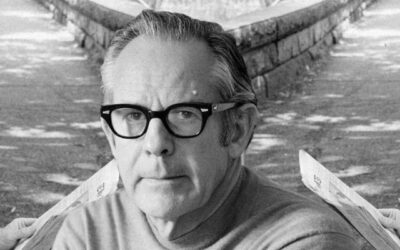
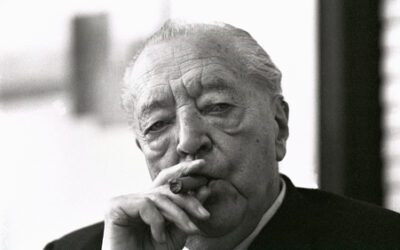
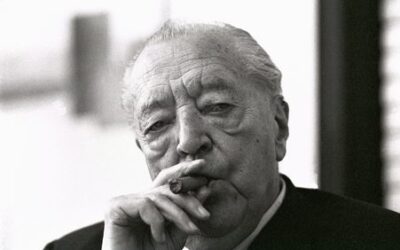
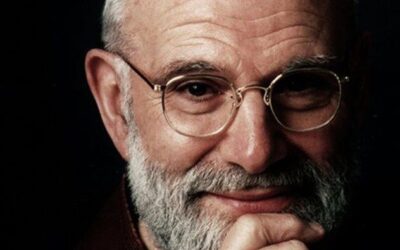
0 Comments